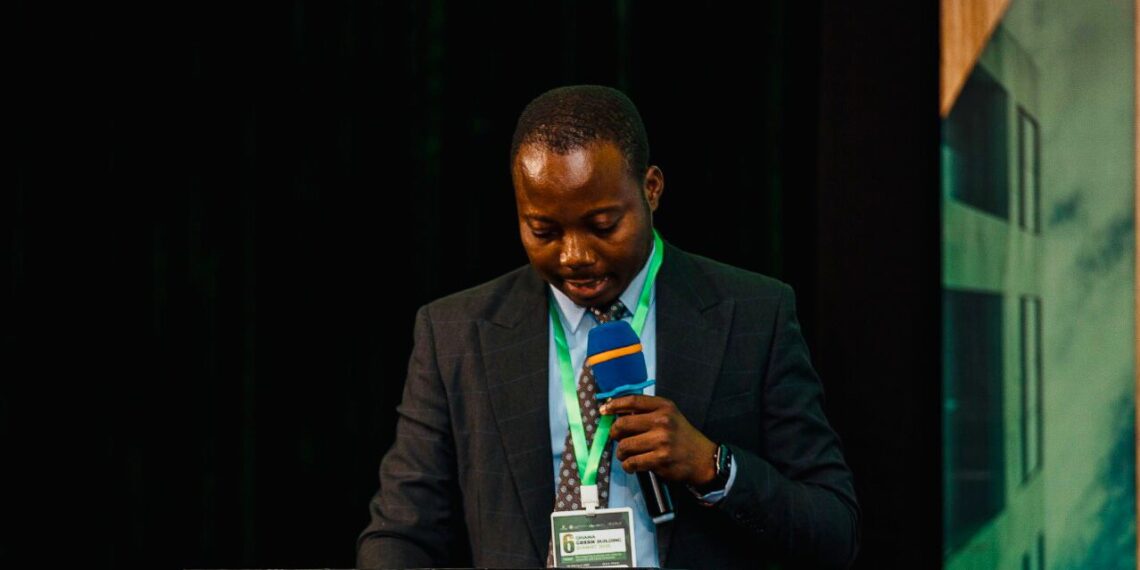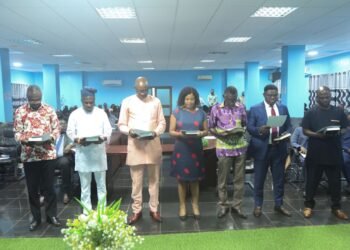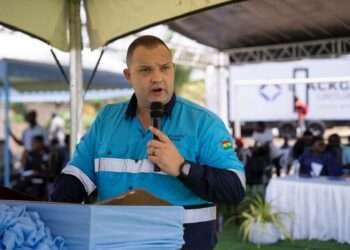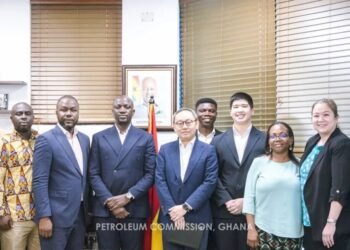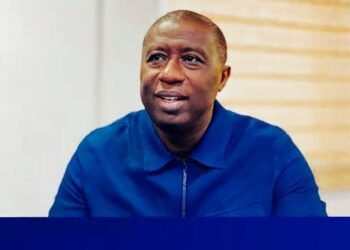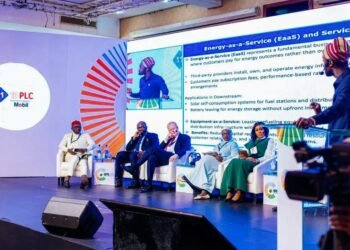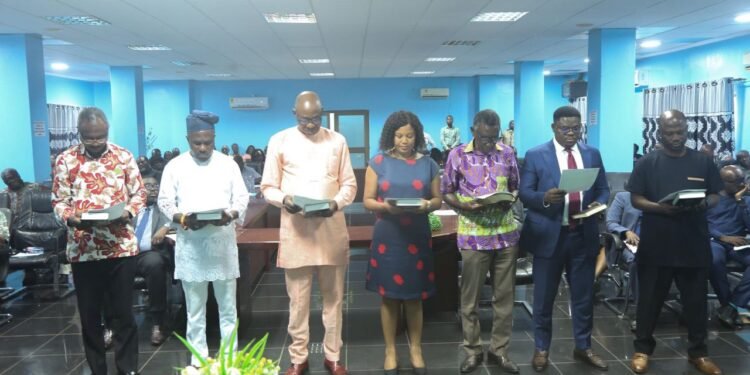Ghana’s participation in the 62nd Session of the UNFCCC Subsidiary Bodies (SB62) in Bonn, Germany, has taken on renewed urgency as global climate action frameworks take shape ahead of COP30 in Brazil.
Speaking from the summit, Mr. Cedric Dzelu, Technical Director at the Office of the Minister of State for Climate Change and Sustainability, offered exclusive insights into Ghana’s expectations and the broader action agenda shaping global climate policy.
In an interview with Vaultz News, Mr. Dzelu laid out the structure of the upcoming COP30 agenda, describing it as a critical opportunity to bridge implementation gaps and accelerate progress across key thematic areas, including finance, mitigation, adaptation, and food systems.
“The COP30 Action Agenda is built around three challenges. First, aligning the action agenda with commitments already made under the UNFCCC and Paris Agreement.
“Second, scaling existing initiatives. And third, monitoring and ensuring transparency and accountability for new and old pledges.”
Mr. Cedric Dzelu, Technical Director at the Office of the Minister of State for Climate Change and Sustainability
The Bonn talks serve as a preparatory platform for COP30, which is scheduled for December 2025 in Belém, Brazil.
Mr. Dzelu highlighted that COP30 will revolve around 30 strategic objectives cutting across core climate themes—from water security, forest protection, and food systems to carbon markets, AI integration, and public procurement.

“Whether it’s mitigating emissions, adapting to climate impacts, financing clean energy, or ensuring climate justice, the COP30 agenda is comprehensive and inclusive.”
Mr. Cedric Dzelu, Technical Director at the Office of the Minister of State for Climate Change and Sustainability
The policy framework guiding COP30 is built around three central themes: mitigation, adaptation and resilience, and a just transition.
These pillars reflect the global commitment to reducing greenhouse gas emissions, strengthening the capacity of communities and ecosystems to cope with climate impacts, and ensuring that the shift to a low-carbon future is fair and inclusive for all.
To operationalize these themes, the framework is supported by five key implementation domains.
These include transitioning energy, industry, and transport systems to more sustainable models; protecting forests, oceans, and biodiversity; transforming agriculture and food systems; enhancing resilience in urban areas and critical infrastructure; and promoting human and social development to ensure equitable climate outcomes.
“These focus areas are more than buzzwords—they represent real issues that affect lives in Ghanaian communities every day.”
Mr. Cedric Dzelu, Technical Director at the Office of the Minister of State for Climate Change and Sustainability
Ghana’s Position: Action, Alignment, and Accountability

At the heart of Ghana’s engagement is a call for climate action to be community-driven, transparent, and aligned with development goals.
“We’re here not just to negotiate but to ensure that policies and promises translate into tangible impacts for our farmers, fishermen, and frontline communities.”
Mr. Cedric Dzelu, Technical Director at the Office of the Minister of State for Climate Change and Sustainability
Ghana supports scaling up the monitoring of climate pledges and pushing for accountability, especially in how climate finance is disbursed and tracked. The country also continues to advocate for a just energy transition that recognizes Africa’s development needs.
“Climate change is fundamentally a human development issue.
“Our policies must reflect that. It’s about livelihoods, food, energy, and water. Ghana is ready to lead by example.”
Mr. Cedric Dzelu, Technical Director at the Office of the Minister of State for Climate Change and Sustainability
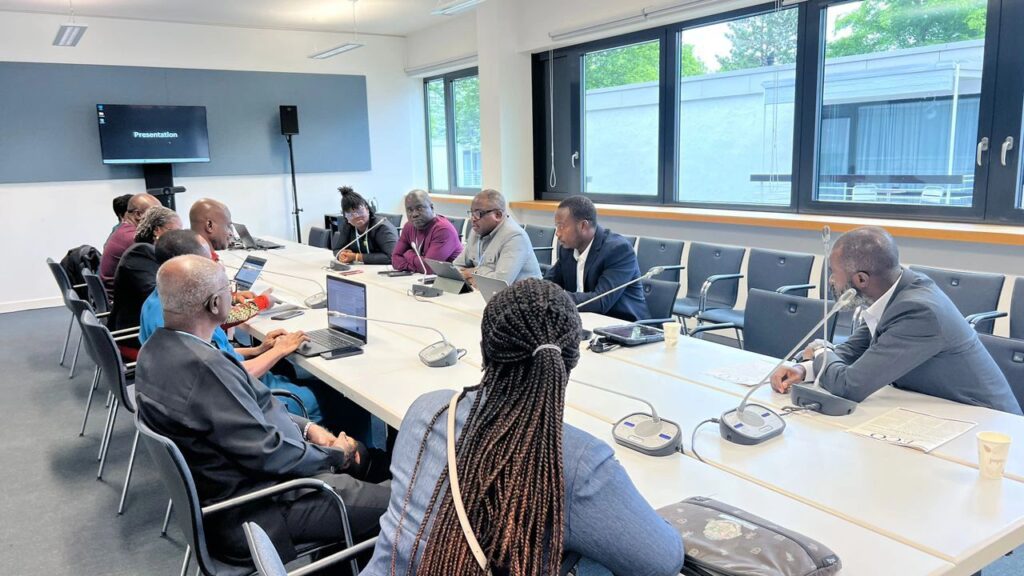
Mr. Dzelu outlined the strategic roadmap leading up to COP30, highlighting critical milestones that global stakeholders and nations must meet to ensure meaningful progress.
By June 2025, efforts will focus on mapping existing climate initiatives and aligning them with measurable performance indicators to assess impact and effectiveness.
From July through September 2025, activation groups will be launched to drive the implementation of the COP30 agenda and address any barriers to broad participation.
The period between September and November will be dedicated to mobilizing support for both national and multilateral acceleration plans.
The process will culminate in December 2025 at COP30, where countries will present climate solutions, exchange best practices, and initiate large-scale collaborations to advance global climate goals.
“These are not abstract steps. They are specific, time-bound processes that will define how we scale ambition and deepen impact.”
Mr. Cedric Dzelu, Technical Director at the Office of the Minister of State for Climate Change and Sustainability
People-Centered Climate Agenda

Mr. Dzelu remarked with a passionate call for grassroots involvement and knowledge-sharing. He promised to continue engaging communities across Ghana, helping them understand how global climate policies link directly to their everyday realities.
“From carbon markets to food systems to adaptation finance, what we decide here affects lives back home.
“We owe it to our people to break down these discussions, demystify them, and include everyone in building our climate future.”
Mr. Cedric Dzelu, Technical Director at the Office of the Minister of State for Climate Change and Sustainability
Mr. Dzelu also urged Ghanaians, civil society groups, and policymakers to ensure visibility of local initiatives in the Global Climate Action Portal and actively engage in the COP30 activation groups and thematic areas.
“It’s essential that Ghanaian projects, innovations, and success stories are recognized globally. This is how we attract funding and collaboration.”
Mr. Cedric Dzelu, Technical Director at the Office of the Minister of State for Climate Change and Sustainability
He also called on countries to track and report progress on their climate pledges and support the COP30 presidency in compiling a “granary of solutions” that can inform global best practices.
“We must move beyond pledges to action. Now is the time to showcase not just problems, but how we are solving them.”
Mr. Cedric Dzelu, Technical Director at the Office of the Minister of State for Climate Change and Sustainability
As momentum builds toward COP30 in Brazil, Ghana’s delegation in Bonn is focused on ensuring that global action frameworks reflect African realities.
With a structured action agenda, a clear roadmap, and a strong emphasis on transparency and inclusivity, Ghana’s voice continues to be one of progress, balance, and ambition.
READ ALSO: Mastercard and Access Bank Unveil Innovative Age-Segmented Card to Empower Ghana’s Youth

